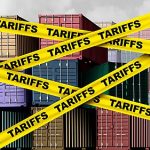
African politicians tend to blame foreign actors or external factors for the problems at home. This is nothing new nor is it unique to African politicians. Across the world, rulers and politicians do not miss a chance to blame domestic woes on local or foreign scapegoats, thus shielding themselves from their own policy failures.
With African politicians, however, this tendency is more persistent than elsewhere. For example, the Ghanaian government recently blamed Russia’s invasion of Ukraine for its economic woes. The Russian embassy in Ghana responded, demanding that officials stop blaming Russia for Ghana’s dire economic situation and pointing out that the problems started well before the Russia-Ukraine war and before covid.
Economic Failure and the Blame Game
Africans suffered under the cruel, oppressive, and dehumanizing system of Western imperialism, and Western control over Africa did not end with decolonization, with African countries living within the context of neocolonial domination. Most of the coups and cases of political instability on the continent since the 1960s have Western fingerprints on them.
For example, the first coup in Africa happened in 1961 with the overthrow and subsequent assassination of democratically elected prime minister Patrice Lumumba, hero of Congolese independence. A crime wholly orchestrated by the United States, Belgium, and Britain, Lumumba’s assassination is regarded as one of the most important assassinations of the twentieth century. His killing precipitated a series of events (e.g., the Western-sponsored dictatorship of Mobutu Sese Seko) and regional conflicts (e.g., Africa’s world war) that resulted in a major humanitarian crisis and the deaths of more than 5.4 million people—the deadliest conflict since World War II. Plus incalculable social and economic ruination.
Lumumba’s assassination was the most crippling blow the West inflicted on postcolonial Africa, and it so crippled the Congo that it still cannot stand firm on its own feet. Similarly, the overthrow of Dr. Kwame Nkrumah’s government in 1966 was hatched by the CIA.
Fast-forward to today, when Western-trained military officers are still staging coups, creating further instability in Africa. This is a culture the West helped to create and that traps African societies in tyranny, instability, and therefore poverty. Thus, the West is, directly or indirectly, responsible for the political instability and conflicts that have plagued the continent since its “independence.”
While the injustices done to Africa cannot be undone, African politicians and bureaucrats play the blame game where it is unwarranted and fail to take responsibility for today’s dire economic situation on the continent. Africa has failed to develop not only because of what Western regimes have done, but also because of statist economic systems implemented across the continent. Like almost everything, Africa’s failed government-led development attempt must be looked at in context.
Late economist and economic historian George Ayittey in How Socialism Destroyed Africa explained:
After independence, the first generation of African leaders launched a frontal assault on what they perceive to be Western institutions. Kwame Nkrumah of Ghana, for example, rejected democracy as an “imperialist dogma” while others dismissed it as “luxury Africa could not afford.” Capitalism was rejected as a Western colonial ideology in one monumental syllogistic error. Colonialism was evil and since the colonialists were capitalists, it too was evil. Socialism, the antithesis of capitalism, was adopted by nearly every African leader and was advocated as the only road to Africa’s prosperity. Nkrumah surmised that “socialist transformation would eradicate completely the colonial structure of our economy.” Additionally, Nkrumah believed “Capitalism is too complicated for a newly independent state; hence, the need for a socialist society.”
Today, the veneer of economic development can no longer be maintained. The various crises boiling up simultaneously at local and global levels have exposed the fact that state-led development largely failed. Economic prosperity, fifty years after independence, is almost nowhere to be seen on the continent. The heavily statist economic system imposed across much of Africa (including North Africa) did not create free and prosperous African societies. Given that many of these failed statist systems were developed by African intellectuals who were fed socialist doctrines at Western universities, we are witnessing a perverse colonialism in which the very programs designed to aid Africa created poverty and ruin instead.
Systemic aid (loans and grants), a statist economic concept, not only failed but also made poverty worse, as explained by Zambian economist Dr. Dambisa Moyo, author of Dead Aid: Why Aid Is Not Working and How There Is a Better Way for Africa (2010). Systemic aid trapped Africa in debt and helped perpetuate a vicious cycle of tyranny, dependency, and poverty.
Though the truth about postcolonial Africa may be unsettling, as Africans we must nonetheless face it to be able to change course—if what we want are free, prosperous, and dignified African societies. For that, African politicians must quit the blame game and also stop dogmatically following foreign socialist economic models. We should realize and admit that African societies failed to develop not so much because of malicious Western meddling, but primarily because of the socialist and statist economic systems our freedom-promising but oppression-delivering leaders have implemented.
Take Responsibility to Change Course
Blaming foreign actors and external factors (e.g., covid and the Russia-Ukraine war) for today’s economic woes will not do us any good. Admitting that the state-led economic development approach failed and left most African societies in a very precarious economic situation characterized by high inflation, high debt, high taxation, high dependency, persistent poverty, food insecurity, massive youth unemployment, meager “economic growth,” and popular discontent will be a good start.
How so? It compels us to rethink the present economic model. We must embrace a fundamentally different approach since the statist system of government control and command of the economy has failed. Moreover, since across Africa the majority of rich people have a direct or indirect past or present connection with the state apparatus, one can say African ruling elites and associates have done very well for themselves already.
Professor Ayittey further clarified:
In traditional Africa, one does not have to line up before a chief‘s palace to seek permission to engage in trade or some occupation. There were free markets, free enterprise, and free trade in Africa before the colonialists arrived. Perhaps, this was the most singular reason why socialism failed miserably in Africa because it is an alien ideology.
Embrace Radically Different Economic Thinking
If we are waiting for a savior or the International Monetary Fund to come and tell us the truth about economics (and economic development), we’ll be waiting (and wasting Africa’s potential) forever. Also, escaping neocolonialism does not have to take us under Communist China’s control through debt. Neither China nor any other entity should (out of collective self-respect), and in any case cannot, develop our economies for us.
The present economic system, a bizarre cocktail of socialist, protectionist, mercantilist, and Keynesian economics underpinned by a fiat money system, has been destroying societies around the world and the West itself. The situation in Zimbabwe, Venezuela, Lebanon, Sri Lanka, Turkey, and other countries is a warning signal African leaders should heed.
Economist and social philosopher Ludwig von Mises pointed out that “Economic prosperity is not so much a material problem; it is, first of all, an intellectual and moral problem.” Indeed, Africa has everything to be the greatest economic success story ever. But because she is philosophically misguided, she remains largely trapped in tyranny, dependency, and poverty. African societies will become free, dignified, and prosperous not by continuing to copy foreign (Marxist and Keynesian) statist economic concepts but by building up from our heritage of decentralized governance, free markets, and free trade.
Conclusion
At “independence,” Africans were promised freedom and development. What was delivered, across much of the continent (including North Africa), were various forms of tyrannical statist systems. Some, including Ethiopia, Algeria, Angola, Congo (Brazzaville), and Mozambique, even went as far as Soviet-style socialist totalitarian dictatorships.
Postcolonial Africa has seen quite an array of repressive, cruel, and oppressive systems. Marxist-Leninist regimes, democratic but dictatorial regimes, many military dictatorships, and more. Name a form of tyrannical rule, and postcolonial Africa has likely seen it. And this is, primarily, why Africa has failed to develop and today finds itself in a dire economic situation.
African politicians should stop blaming foreign actors and external factors for our economic woes. The statist economic systems of the past fifty years miserably failed to create free and prosperous African societies, even while they have been incredibly beneficial to Africa’s ruling elites and people who are politically connected.
If free, dignified, and prosperous African societies are what we want, then we must abandon the present Marxist-Keynesian-mercantilist economic thinking and build up from Africa’s economic heritage of free markets, free trade, and free enterprise. It is time to end the oppression of Africans by Africans. Today’s context of crises is an opportunity for African leaders to finally let Africans be truly free.





